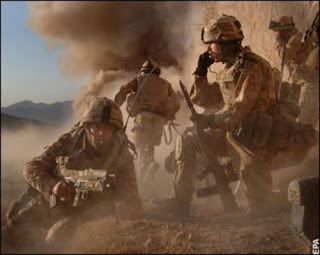Richard Haass
Newsweek
GOP chairman Michael Steele was blasted by fellow Republicans recently for describing Afghanistan as “a war of Obama’s choosing,” and suggesting that the United States would fail there as had many other outside powers. Some critics berated Steele for his pessimism, others for getting his facts wrong, given that President George W. Bush ordered the invasion of Afghanistan soon after 9/11. But Steele’s critics are the ones who are wrong: the RNC chair was more correct than not on the substance of his statement, if not the politics.
The war being waged by the United States in Afghanistan today is fundamentally different and more ambitious than anything carried out by the Bush administration. Afghanistan is very much Barack Obama’s war of choice, a point that the president underscored recently by picking Gen. David Petraeus to lead an intensified counterinsurgency effort there. After nearly nine years of war, however, continued or increased U.S. involvement in Afghanistan isn’t likely to yield lasting improvements that would be commensurate in any way with the investment of American blood and treasure. It is time to scale down our ambitions there and both reduce and redirect what we do.
The first thing we need to recognize is that fighting this kind of war is in fact a choice, not a necessity. The United States went to war in October 2001 to oust the Taliban government, which had allowed Al Qaeda to operate freely out of Afghanistan and mount the 9/11 attacks. The Taliban were routed; members of Al Qaeda were captured or killed, or escaped to Pakistan. But that was a very different war, a necessary one carried out in self-defense. It was essential that Afghanistan not continue to be a sanctuary for terrorists who could again attack the American homeland or U.S. interests around the world.
The Bush administration was less clear on what to do next. Working in the State Department at the time, I was appointed by President Bush as the U.S. government’s coordinator for the future of Afghanistan. At a National Security Council meeting chaired by the president in October 2001, I was the one arguing that once the Taliban were removed from power there might be a short-lived opportunity to help establish a weak but functional Afghan state. There and at subsequent meetings I pressed for a U.S. military presence of some 25,000–30,000 troops (matched by an equal number from NATO countries) to be part of an international force that would help maintain order after the invasion and train Afghans until they could protect themselves.


Be the first to comment on "Time to Get Out of Afghanistan: We’re Not Winning, It’s Not Worth It"